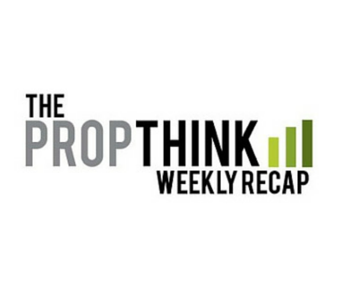Perhaps of most interest this week to long-time PropThink readers, Innate Pharma (IPH.PA)(IPHYF) took on AstraZeneca (AZN) as partner for the anti-NKG2A antibody IPH2201 on Friday morning, sending the stock higher by 50% in the session. AstraZeneca put up $250 million in cash for rights to the immunotherapy and committed to $1.025 billion in additional milestone payments if IPH2201 makes it to market. The deal comes with typical royalties on future IPH2201 sales.With no human proof of concept results seen publicly to date (a phase II trial began just this year), the partnership is incremental validation of the approach.
Innate shares dropped less than a month ago when one of two active arms in the ongoing EffiKIR study, testing Innate’s lead asset and anti-KIR antibody lirilumab in AML, was stopped early due to futility. Which of the two arms was halted is still unknown, but we and most analysts suspect it was likely the lower and less frequent dose being tested; the second active arm continues in the trial.
Despite this dip in March, our recommendation to be long the stock from €9.00 has worked well, with IPH.PA trading over €13.75 on the AstraZeneca deal this Friday (+50% to date). You can read Mr. Zack Fink’s original research here.
But Friday got even crazier, and Mr. Fink looked especially smart by the end of the week. Just this week we recommended to PropThink readers getting involved in Affimed Therapeutics (AFMD), a European developer of bispecific antibodies whose valuation meaningfully lags competitors like Macrogenics (MGNX) and Xencor (XNCR).
The initiation couldn’t have been timed much better. AFMD went parabolic in the Friday session, ripping 40% to close the day at $11.72. Our suggestion to PropThink’s Premium members was to get long from ~$7.50. With +50% in less than one week, the move gives new investors a great cushion as AFMD comes into the second half of the year and a number of potential inflection points. What makes AFMD’s antibodies, dubbed TandAbs, different from other bispecific/multivalent antibodies like Amgen’s (AMGN) BiTEs and Macrogenics’ (MGNX) DARTs is their potential for 4 antigen-binding sites, each with its own unique target. The goal – redirect Natural Killer or T cells to selectively destroy cancer cells in the body. While the human data thus far have been mediocre in comparison to other immunotherapies, there’s reason to believe current trials will be more successful – get the full story by clicking here.
Big kudos to Mr. Fink – who took the initiative on both Affimed and Innate – for staying on top of the early but intriguing use of Natural Killer cells in immuno-oncology, the innate immune system, and the emerging cohort of European drug developers. European biotech is a segment that had been neglected for years but has turned up some compelling names in the last two years.
The annual International Liver Congress this week brought to light a surprise contender in the emerging field of treatments for NASH (non-alcoholic steatohepatitis) – Novo Nordisk (NVO). [Sticking to the European biotech theme, as well.]
39% of patients receiving Novo’s blockbuster diabetes drug liraglutide (branded as Victoza) in a small trial had complete resolution of NASH at the end of the 48-week treatment period, compared to just 9% of patients receiving a placebo. The study’s primary endpoint was the resolution of NASH and no worsening in fibrosis from baseline to end-of-treatment. 52 patients were assigned to either liraglutide or a placebo; of the 45 patients who underwent liver biopsy at the end of study, 39% (9/23) who received liraglutide had resolved NASH, versus 9% (2/22) of patients receiving a placebo. That’s a meaningful improvement, and it puts competing drug developers Intercept Pharmaceuticals (ICPT) and Genfit (GNFT) on notice.
If you missed it last week, check out our recent primer for ASCO 2015, which kicks off at the end of May. Abstracts are made public in just three weeks.
One or more of PropThink’s contributors are long IPH.PA, AFMD, MGNX, XNCR, AZN, AMGN, ICPT, or NVO.



